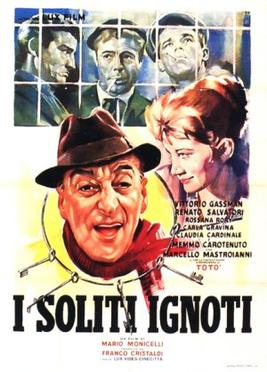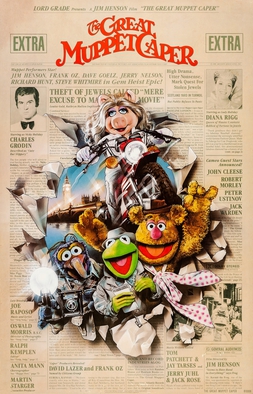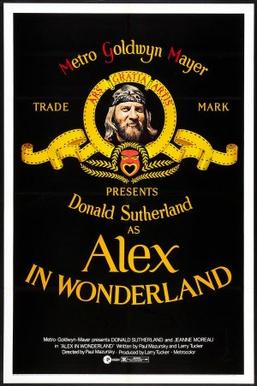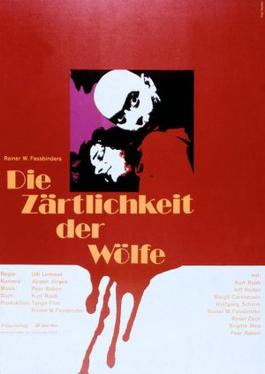
Take the Money and Run is a 1969 American mockumentary crime comedy film directed by Woody Allen. Allen co-wrote the screenplay with Mickey Rose and stars alongside Janet Margolin. The film chronicles the life of Virgil Starkwell, an inept bank robber.

Barry Lee Levinson is an American film director, producer and screenwriter. His best-known works are mid-budget comedy drama and drama films such as Diner (1982), The Natural (1984), Good Morning, Vietnam (1987), Bugsy (1991), and Wag the Dog (1997). Levinson won the Academy Award for Best Director for Rain Man (1988). In 2021, he co-executive produced the Hulu miniseries Dopesick and directed the first two episodes.

Big Deal on Madonna Street is a 1958 Italian comedy caper film directed by Mario Monicelli. Regarded as one of the masterpieces of Italian cinema, the film received an Academy Award nomination for Best Foreign Language Film.

Music Box is a 1989 film by Costa-Gavras that tells the story of a Hungarian-American immigrant who is accused of having been a war criminal. The plot revolves around his daughter, an attorney, who defends him, and her struggle to uncover the truth.

The Great Muppet Caper is a 1981 musical heist comedy film directed by Jim Henson and the second theatrical film featuring the Muppets. The film stars Muppet performers Henson, Frank Oz, Dave Goelz, Jerry Nelson, Richard Hunt, and Steve Whitmire, as well as Charles Grodin and Diana Rigg with special cameo appearances by John Cleese, Robert Morley, Peter Ustinov, and Jack Warden. The film was produced by ITC Entertainment and The Jim Henson Company and distributed by Universal Pictures. In the plot, the Muppets are caught up in a jewel heist while investigating a robbery in London.

Escape from Alcatraz is a 1979 American prison action thriller film directed and co-produced by Don Siegel, written by Richard Tuggle, and starring Clint Eastwood alongside Patrick McGoohan, Fred Ward, Jack Thibeau, and Larry Hankin with Danny Glover appearing in his film debut.

Stir Crazy is a 1980 American comedy film directed by Sidney Poitier, written by Bruce Jay Friedman, produced by Hannah Weinstein, and starring Gene Wilder and Richard Pryor as two unemployed friends who are given 125-year prison sentences after getting framed for a bank robbery. While in prison they befriend other prison inmates. The film reunited Wilder and Pryor, who had appeared previously in the 1976 comedy thriller film Silver Streak. The film was released in the United States on December 12, 1980 to mixed reviews, and was a major financial success.

See No Evil, Hear No Evil is a 1989 American thriller comedy film directed by Arthur Hiller. The film stars Richard Pryor as a blind man and Gene Wilder as a deaf man who work together to thwart a trio of murderous thieves. This is the third film featuring Wilder and Pryor, who had appeared previously in the 1976 film Silver Streak and the 1980 film Stir Crazy. The film was released in the United States on May 12, 1989.

Le Cercle Rouge is a 1970 crime film set mostly in Paris. It was directed by Jean-Pierre Melville and stars Alain Delon, Bourvil, Gian Maria Volonté, François Périer and Yves Montand. It is known for its climactic heist sequence which is about half an hour in length and has almost no dialogue.

Start the Revolution Without Me is a 1970 British-French-American period comedy film directed by Bud Yorkin and starring Gene Wilder, Donald Sutherland, Hugh Griffith, Jack MacGowran, Billie Whitelaw, Orson Welles and Victor Spinetti. The comedy is set in revolutionary France where two peasants are mistaken for the famous Corsican Brothers. The film is considered a parody of a number of works of historical fiction about the French Revolution and French history in general, including A Tale of Two Cities (1859) by Charles Dickens and two works by Alexandre Dumas, The Corsican Brothers (1844) and The Man in the Iron Mask (1847).

The First Great Train Robbery is a 1978 British heist comedy film directed by Michael Crichton, who also wrote the screenplay based on his 1975 novel The Great Train Robbery. The film stars Sean Connery, Donald Sutherland and Lesley-Anne Down.

Alex in Wonderland is a 1970 American comedy-drama film directed by Paul Mazursky, written with his partner Larry Tucker, starring Donald Sutherland and Ellen Burstyn. Sutherland plays Alex Morrison, a director agonizing over the choice of follow-up project after the success of his first feature film. The situation is similar to the one Mazursky found himself in following the success of Bob & Carol & Ted & Alice (1969) and he casts himself in a role as a new-style Hollywood producer. His daughter Meg Mazursky appears as Amy, one of Morrison's daughters. Noted teacher of improvisational theater Viola Spolin plays Morrison's mother. The film also features cameo appearances by Federico Fellini and Jeanne Moreau, and seems to be inspired by their work. In particular, Fellini's 8½ (1963), about a film director who's artistically stuck, is referenced. Moreau sings two songs on the soundtrack, "Le Vrai Scandale" and "Le Reve Est La."

Dennis the Menace is a 1993 American family comedy film based on the Hank Ketcham comic strip of the same name, directed by Nick Castle, written and coproduced by John Hughes and distributed by Warner Bros. under its Family Entertainment label.

Mrs. Soffel is a 1984 American drama film directed by Gillian Armstrong, starring Diane Keaton and Mel Gibson and based on the story of condemned brothers Jack and Ed Biddle, who escaped prison with the aid of Kate Soffel, the warden's wife.

Bread and Chocolate is a 1974 Italian comedy-drama film directed by Franco Brusati. This film chronicles the misadventures of an Italian immigrant to Switzerland and is representative of the commedia all'italiana film genre. In 2008, the film was included on the Italian Ministry of Cultural Heritage’s 100 Italian films to be saved, a list of 100 films that "have changed the collective memory of the country between 1942 and 1978."

Hot Stuff is a 1979 American action crime comedy film starring Dom DeLuise, Suzanne Pleshette, Jerry Reed and Ossie Davis. DeLuise also directed the film, and the song "Hot Stuff" was written and performed by Reed.

Free Money is a 1998 Canadian black comedy film directed by Yves Simoneau, produced by Nicolas Clermont and written by Anthony Peck and Joseph Brutsman, and starring Marlon Brando in his penultimate film. The film also features Charlie Sheen, Thomas Haden Church, Mira Sorvino and Donald Sutherland.

Harry and Walter Go to New York is a 1976 American period comedy film written by John Byrum and Robert Kaufman, directed by Mark Rydell, and starring James Caan, Elliott Gould, Michael Caine, Diane Keaton, Charles Durning and Lesley Ann Warren. In the film, two dimwitted con-men try to pull off the biggest heist ever seen in late nineteenth-century New York City. They are opposed by the greatest bank robber of the day, and aided by a crusading newspaper editor.
Triple Trouble is a 1950 comedy film directed by Jean Yarbrough and starring The Bowery Boys. The film was released on August 13, 1950, by Monogram Pictures and is the nineteenth film in the series.

The Tenderness of Wolves is a 1973 West German crime drama film directed by Ulli Lommel. The story is based on the crimes of German serial killer and cannibal Fritz Haarmann. It was written by Kurt Raab, who also stars in the film, and produced by Rainer Werner Fassbinder. It was entered into the 23rd Berlin International Film Festival.



















